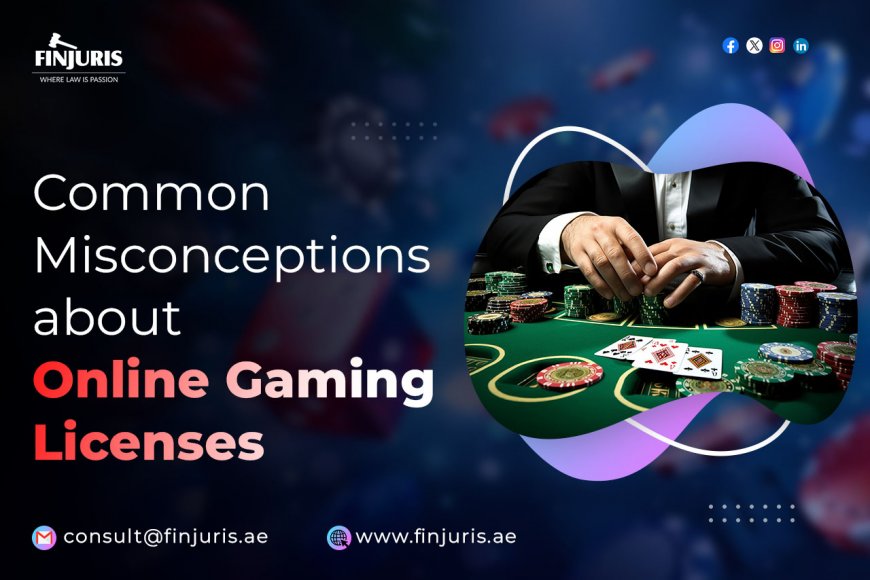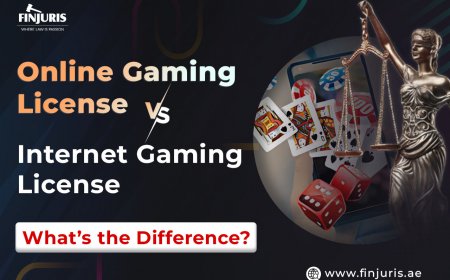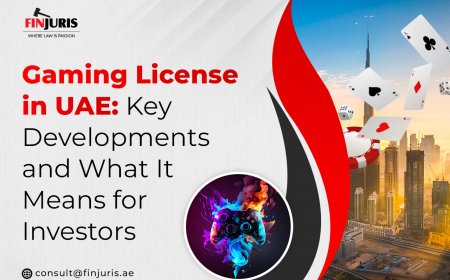Common Misconceptions about Online Gaming Licenses
The field of online gaming is riddled with myths and misconceptions, notably about online gaming licenses. These licenses are critical to guaranteeing fair play and consumer protection, but many people—both players and operators—have misconceptions about the licensing process, costs, and benefits.

In this post, we will dispel some of the most popular misconceptions about online gaming licenses and provide a better understanding of their significance in the business.
Myth: All Online Gaming Platforms are Licensed.
Reality: Not all Platforms Have Licenses.
One of the most common misconceptions is that all online gambling sites require a online gaming license. In truth, many respected websites are licensed, but there are numerous uncontrolled platforms. These unregulated sites may expose gamers to fraud, unfair gaming practices, and a lack of consumer protection. Before engaging in any gaming activity, players should always check the licensing status of the site.
Unlicensed platforms can operate outside of the regulatory framework, therefore they are not required to follow responsible gaming standards or security measures. This can lead to difficulties such as unmet reimbursements, improper use of personal data, and inconsistent customer service.
Myth: Getting an Online Gaming License is Quick and Easy.
Reality: The Licensing Process Can be Lengthy and Complex.
Many people believe that getting an online gaming license is a simple process. However, it can be hard and time-consuming. Operators must traverse complex regulatory systems, create detailed documentation, and pass stringent background checks. The process can take many months, depending on the jurisdiction and application's completeness.
For example, jurisdictions such as the United Kingdom and Malta have stringent standards that involve not just financial assessments but also the operator's business strategy and compliance history. Operators must demonstrate their capacity to create a fair gaming environment, apply security measures, and respect players' rights.
Myth: Licenses are Expensive, making them Unaffordable for Small Operators.
Reality: Costs Vary According on Jurisdiction and Type of License.
While some governments demand high fees for gaming licenses, the charges vary greatly based on the region and type of license necessary. Some jurisdictions, like as Curacao, provide more affordable solutions, enabling smaller businesses to enter the market.
Furthermore, investing in a license can pay off in terms of player trust and market reputation, resulting in long-term benefits for the operator. Many players prefer to wager on licensed sites, therefore operators with proper licenses typically have a greater customer base. Therefore, while the initial expenditures may appear onerous, they can be a beneficial investment.
Myth: A License Ensures Fair Play and Safety.
Reality: Licensing is Just the Beginning.
A gaming license is a strong indicator of an operator's dedication to fair play and safety, but it does not ensure a risk-free environment. Licensed operators must still follow regulations; however, enforcement and compliance may vary. To ensure a secure gaming experience, players should seek out additional safety measures such as third-party audits, player evaluations, and responsible gaming regulations.
For example, many licensed platforms have their games audited on a regular basis by independent businesses to ensure fairness and conformity with industry standards. This provides an additional degree of protection and increases participants' confidence in the integrity of the games they play.
Myth: Licenses are all the same.
Reality: Different licenses have different standards and requirements.
Not all gaming licenses are created equally. Compliance rules differ among jurisdictions, affecting everything from gaming fairness to player rights. For example, the UK Gambling Commission (UKGC) is known for its strict rules, whilst other jurisdictions may have more lenient standards.
Operators must select a license jurisdiction that supports their business strategy and operational values. This decision could have a huge impact on their industry reputation. Understanding these differences can help players make better decisions about where to play.
Myth: Once you get your license, you're set for life.
Reality: Ongoing compliance is necessary.
Another prevalent fallacy is that once a casino license is granted, operators can operate indefinitely with no additional obligations. In reality, keeping a gaming license necessitates continuing compliance with regulatory standards, regular audits, and periodic renewals. Failure to meet these conditions might result in sanctions, including the termination of the license.
Regulatory organizations want operators to consistently demonstrate their commitment to safe and fair gaming. This may include improving security measures, launching new responsible gaming initiatives, and adjusting to legal changes. For operators, maintaining compliance is a constant effort that necessitates devotion and resources.
Myth: Licensing only benefits operators.
Reality: Players benefit greatly from licensing.
While having a gaming license is primarily intended to legitimate the operator's business, gamers also profit significantly. Licensed platforms are required to follow consumer protection standards, which ensure fair play and secure transactions. This level of oversight gives players a way to resolve issues, which improves their gaming experience even more.
Furthermore, licensed operators frequently provide better customer service and support alternatives. Players may expect prompt assistance when problems happen, which is critical to maintaining a great gaming experience. By using licensed platforms, players can have piece of mind knowing that they are safeguarded by regulatory regulations.
Myth: Players do not need to worry about licensing.
Reality: Player awareness is essential for safe gaming.
Some players may believe that the licensing status of a gaming platform does not directly affect them. However, knowing if a platform is licensed is critical for guaranteeing a safe and fair gaming environment. Engaging with unregistered operators might result in poor customer service, unfair gaming practices, and financial loss.
Before depositing dollars or giving personal information, players should actively verify the platform's licensing status. This can include looking for license seals on the website, researching the regulatory agency, and reviewing player reviews to determine the platform's credibility.
Understanding the reality behind these popular myths concerning online gaming licenses is critical for both players and operators. Dispelling these fallacies allows players to make more educated decisions about where to play, while operators can better negotiate the complex world of gaming regulation. Awareness and education are essential for creating a safe and trustworthy online gaming environment that benefits everyone participating in the industry.
Gaming licenses play an increasingly important role as online gaming grows in popularity. By grasping the reality of licensing, stakeholders may help to create a more transparent, fair, and secure gaming environment, thereby improving the overall experience for everyone involved. Whether you're a player looking for a safe environment or an operator looking for compliance, understanding these distinctions is critical.
What's Your Reaction?




















